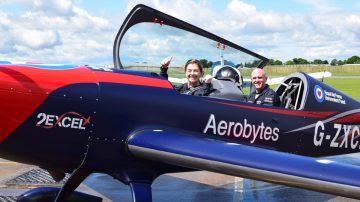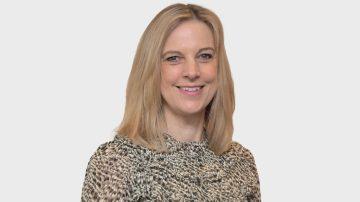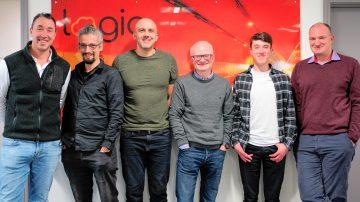“Daddy, I still can’t see him.” The kid’s father shoots me an exasperated eye roll. I understand that look. I feel his pain.
It’s a mercifully dry Saturday in November and, like thousands of other islanders, I’m stood touching elbows with strangers to watch Father Christmas come to Town. Looking around, I can see frazzled parents placating little ones with juice cartons and snack bars as anticipation reaches fever pitch. Waiting with children isn’t much fun.
The Christmas Lights Switch-On can be exhausting but this year there’s another feeling at play: gratitude. I don’t think any of us can really believe our luck that we’re doing this at all.
It’s fitting, then, that as the parade finally rolls by, it’s not the big man in red who catches my eye but his special guest, Guernsey’s unflappable Director of Public Health. Though I’m certain Dr Nicola Brink would balk at the thought of upstaging Santa, her appearance elicits cheers from the crowd.
“I have to say, the support that we, as the department of Public Health, have received, and the support I’ve received personally from the people of Guernsey, has been incredibly encouraging and humbling”, she says, having kindly squeezed in chat amid her hectic schedule.
“People have been really, genuinely, looking out for us and I feel like they’ve come on a journey with us. It’s been quite the journey”.
Hasn’t it just.
The light at the end of the tunnel
Sitting on a tourist train flanked by elves is a strange thing for the island’s most senior medical professional to be doing, but then so is being hoisted 30 metres high to plant a star atop a giant Christmas tree, or recording storybooks for children. Normal rules don’t apply in 2020.
Until this year, Nicola, who made the Channel Islands her home nearly two decades ago, had been quietly achieving brilliant things, first with the local clinical HIV and hepatology service, then as Director of Public Health in 2018.
She has helped significantly reduce the number of unwanted teen pregnancies and implemented programmes to eliminate Hepatitis C and cervical cancer. But despite her remarkable contribution to the health and wellbeing of islanders, not many would have recognised her name before Covid-19. Now, she’s the public face of a pandemic. It’s an unenviable role but one that the 60-year-old has seemingly taken in her stride.
At press conferences, Nicola’s soothing voice and ability to make the science digestible struck a chord with anxious islanders. And the results of her pandemic strategy speak for themselves: at the time of writing, there are just two known cases of Covid-19 in Guernsey. The island has (so far) dodged a second wave, and there’s plenty of reason for optimism.
The day before our interview, 90-year-old Margaret Keenan became the first patient in the world to receive the Pfizer Covid-19 vaccine. It feels like quite the moment. I ask Nicola what went through her head watching the news footage.
“Well, I think it’s an incredibly exciting day for science, and an incredibly exciting day for all of us. We can now start seeing the light at the end of the tunnel of the pandemic. This vaccine has enabled us to start looking forward to the end of all this,” she says.
“An incredible amount of effort has been put into developing a vaccine. No corners have been cut, but people have been working extremely hard to make this happen. There’s a lot of additional work being done to enable us to be in a position where we can administer it locally, but it’s an exciting day for the island”.
Preparing for a pandemic
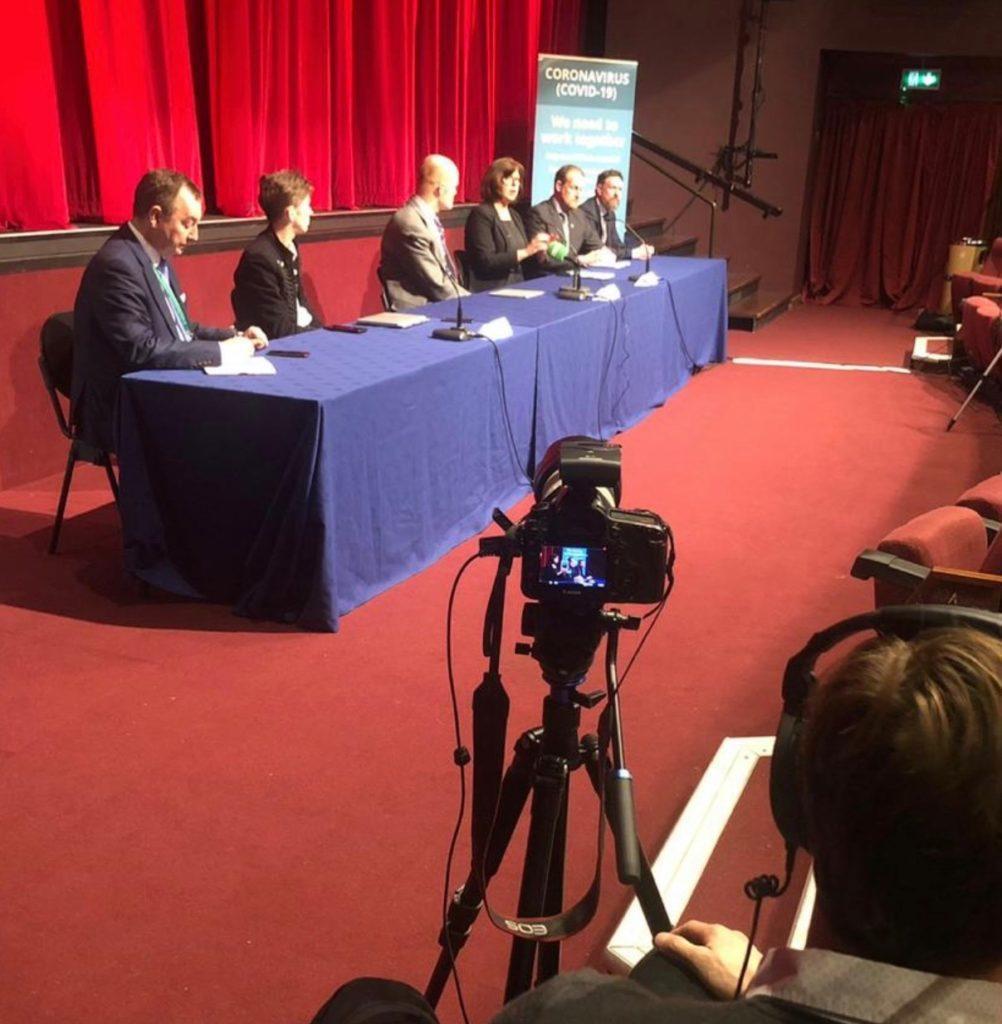
It was the end of December, one year ago, when Nicola received a routine notice from the World Health Organisation. But this one, about an unexplained cluster of cases in Wuhan, in China’s Hubei Province, caught her attention. After tracking the virus’s progress for two weeks, she expressed her concern to Heidi Soulsby, then President of the Committee for Health and Social Care. This was on 14 January.
“From our point of view, early preparedness was absolutely key. I felt like this had pandemic potential. We had to prepare for that possibility”.
What made this different to other outbreaks, I ask.
“It was a new virus and the fact that it was transmitting in a way that we hadn’t seen with the first SARS virus. Its ability to transit from person to person was really efficient”.
A Science and Technical Advisory Cell was convened to monitor the data and develop a strategy.
“We felt from the beginning that we had to define a programme of action. The fact we have a single hospital was something we needed to address because of its impact on our resilience. If you look at the spread in the UK, not all areas are affected to the same degree at the same time. One area could be badly affected but a hospital 40 miles away could help. We don’t have that option, so our best option was a community track and trace system”.
In February, three months before the UK Prime Minister Boris Johnson boasted of putting together a “world-beating” tracing system, a local contact tracing team was in training. By the time the first case of coronavirus was identified in Guernsey, on 9 March, the island was ready.
“We quickly realised that we had to develop a diagnostic capability on the island. At that time, the UK were processing a large number of samples and then they changed strategy, moving away from track and trace, and they were no longer consistent with our strategy. From our perspective, the ability to move rapidly and work across departments proved vital”.
A tale of two islands
Nicola credits HSC’s cross-departmental approach, and a readiness of local politicians to heed expert opinion, as huge contributing factors to Guernsey’s successful fight against the pandemic. But if the warning signs were there, why were other jurisdictions so unprepared?
“We have been fortunate. We did run pandemic training in November 2019. There were pressures, in regards to Brexit, which had highlighted the need for it. But the fact we have politicians who actually listened to what we said has been very important, and how we’ve worked together really has put us in a good position to deal with it”.
While Guernsey’s government has been largely praised for its handling of the pandemic, leaders of other jurisdictions haven’t fared so well. For example, the Government of Jersey is currently under fire as cases soar above 800. The court of public opinion has had a tendency to pit the two islands against one another. Are comparisons ever useful, or is it just extra noise?
“It would be difficult for me to comment on Jersey. My focus is and, throughout this pandemic, has always been Guernsey”, she says. “But it’s always important to look at other jurisdictions and be prepared to learn – it’s so important for anyone in a pandemic”.
Fighting the war on facts
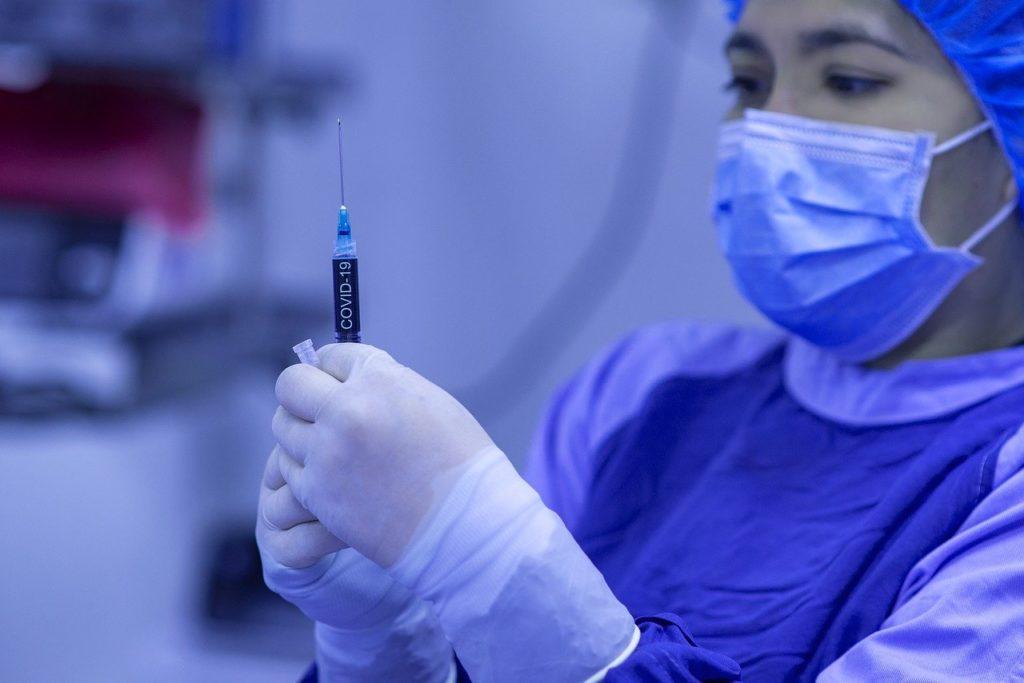
While comparing Guernsey to Jersey has been a popular pastime on social media, keyboard warriors have also been casting doubt over the severity of the virus, claiming it to be no worse than the flu. At their most extreme, Covid deniers believe the pandemic is one big hoax.
These wild theories are part of a wider global movement that is rejecting scientific reality and objective truth. As a scientist, and as someone who has worked on the frontline of this crisis, I ask if this war on facts is frustrating. As I suspect, frustration is not really Nicola’s style.
“Of course it’s a concern that people might think like that. We know that the disease does cause people to die. It causes some people to get really ill and require hospitalisation. There’s also the situation of long-term consequences, long Covid, where people are still experiencing symptoms like breathlessness months after the initial infection. Yes, most people will recover completely but for certain groups of individuals, particularly older people, it can have very serious consequences”, she says sternly.
“What I would say to people like that is look at the facts in scientific journals. That will give you an understanding of the impact Covid has had worldwide. When I last looked at the figures, it was over 1.3 million deaths”.
What about anti-vaxxers? Covid vaccines have the potential to save millions of lives around the world but developing them is half the battle – you have to persuade people to take them, which is harder than it sounds thanks to a huge spread of misinformation online.
“I think that having a dialogue and speaking to people is always good. Challenge is good, it can make you think and consider things. Constructive challenge should be welcomed and engaged with by scientists and policymakers.
“With regards to vaccine hesitancy, if people say, ‘should I give it to my daughter or my mother,’ I think about whether it’s something I’d give my own family, and I absolutely would recommend it. And that’s how you have to approach concerns – a combination of discussing the science, but also personalising it. Vaccines have undoubtedly saved literally millions of lives, and there is every reason to believe that this one will too”.
In part two, to be published on Thursday 17 December, Dr Nicola Brink discusses making Guernsey her home, becoming a local celebrity and what got her through the darkest days of 2020.




